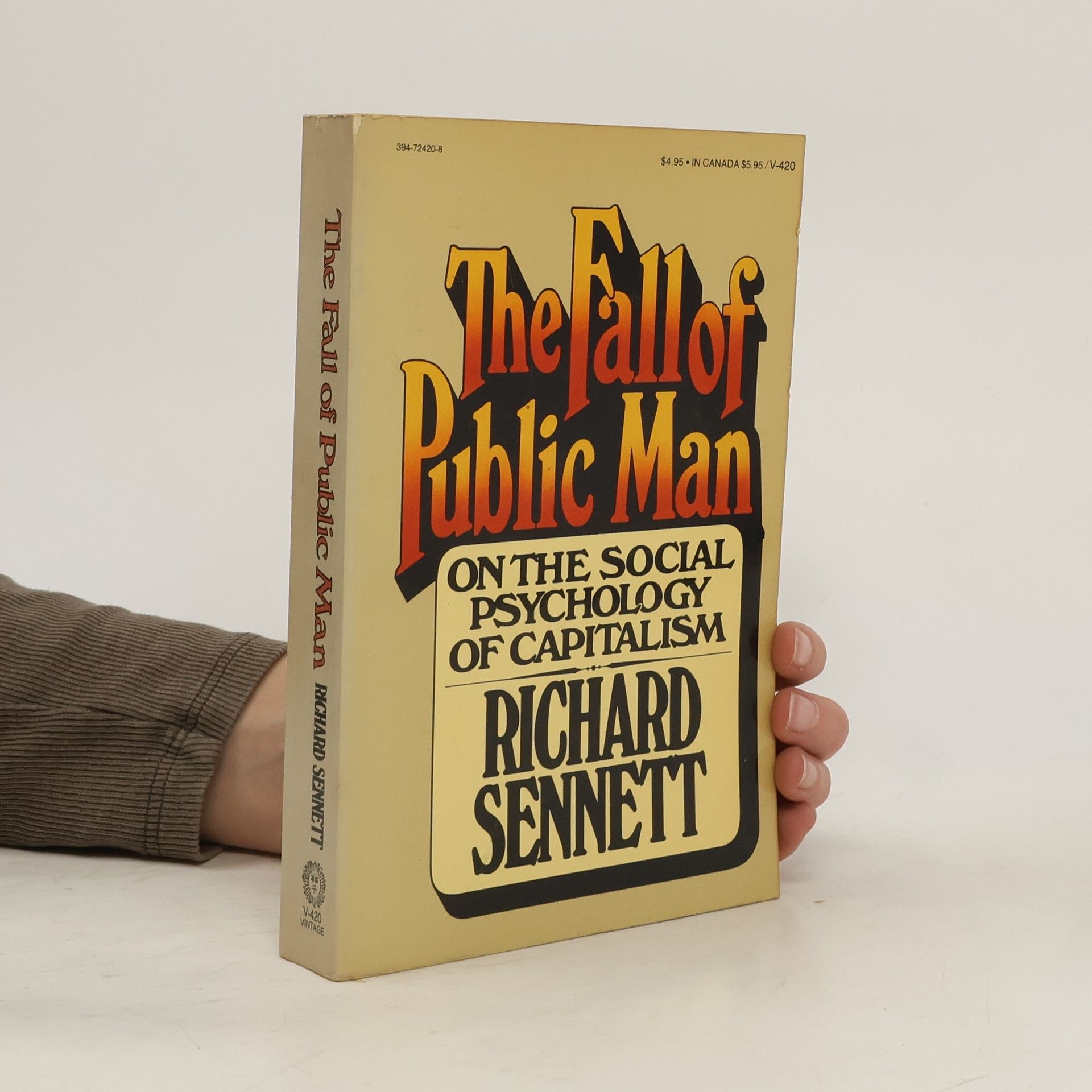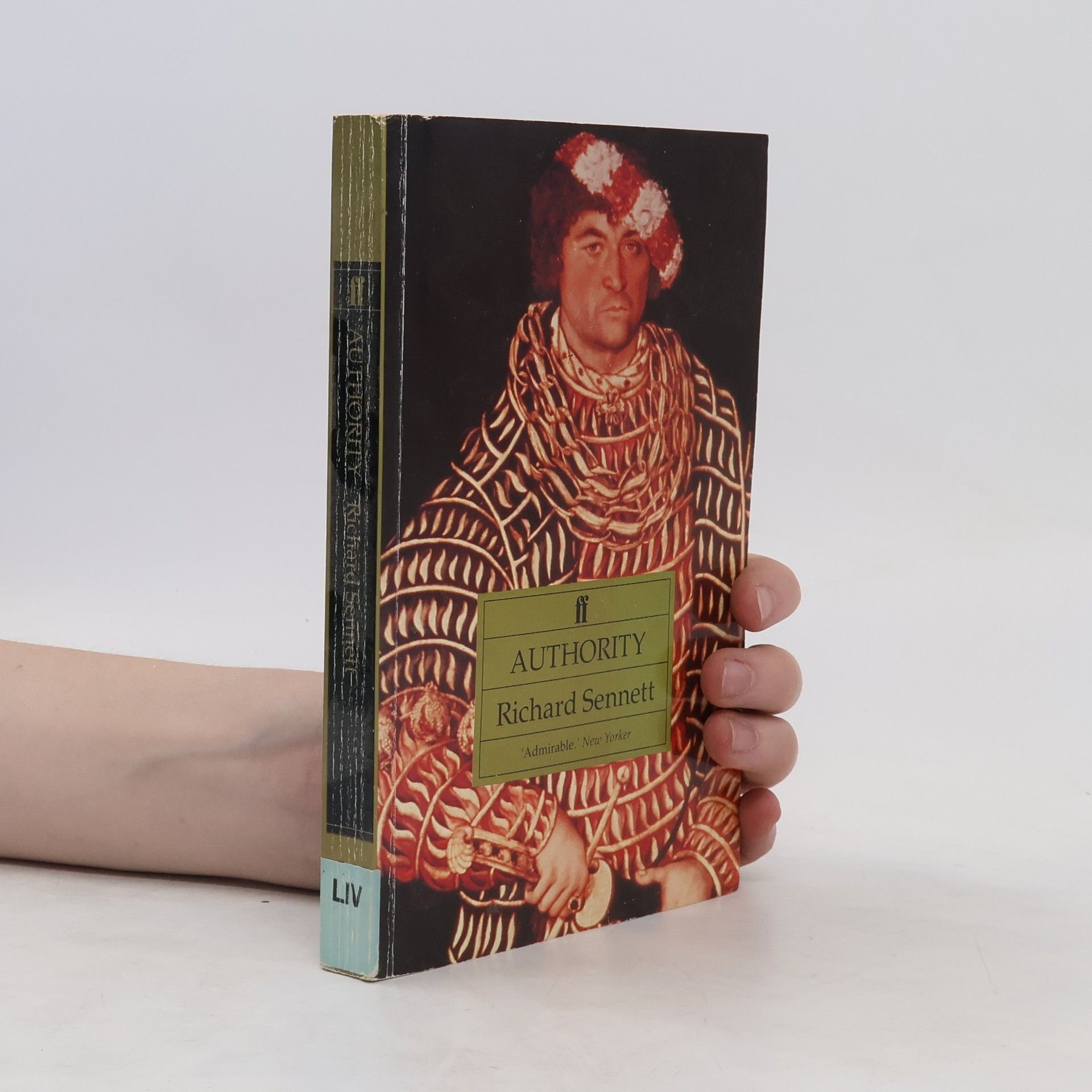Focusing on the bodily and physical aspects of performance, this book delves into the connections between art, particularly music, and everyday life. Richard Sennett examines how the rituals of daily living can be seen as performances, highlighting the interplay between politics and artistic expression. Through this lens, the work invites readers to reconsider the significance of performance in various contexts beyond mere words.
Richard Sennett Book order (chronological)
Richard Sennett has dedicated his work to understanding how individuals and groups make social and cultural sense of their urban environments and labor. His research focuses on empowering people to become adept interpreters of their own experiences, even amidst societal obstacles. As a social analyst, Sennett builds upon the pragmatist tradition of William James and John Dewey. He delves into the formation of identity within cities, explores how modern capitalism reshapes the lives of workers, and examines the consequences for responsibility, cooperation, and craftsmanship.







Democracy and Urban Form
- 264 pages
- 10 hours of reading
Exploring the relationship between architecture and democracy, the book revisits Richard Sennett's 1981 lectures, emphasizing how urban design can influence public discourse. It argues that cities have the potential to either foster or hinder democratic engagement. With contemporary political polarization in mind, the text examines how thoughtful architectural choices can enhance civic dialogue and participation, highlighting the enduring significance of these ideas in today's context.
Der darstellende Mensch. Kunst, Leben, Politik
- 288 pages
- 11 hours of reading
Sennett untersucht die Rolle von Darstellern in Politik, Kunst und Alltag und zeigt, wie nonverbale Kommunikation sowohl befreiend als auch repressiv sein kann. Er zieht Parallelen vom antiken Athen bis zu modernen Straßenmusikern und thematisiert die Bedeutung der Freiheit in der Performance.
Conversations with Richard Sennett
- 180 pages
- 7 hours of reading
The Performer explores the relations between performing in art (particularly music), politics and everyday experience. It focuses on the bodily and physical dimensions of performing, rather than on words. Richard Sennett is particularly attuned to the ways in which the rituals of ordinary life are performances. The book draws on history and sociology, and more personally on the author's early career as a professional cellist, as well as on his later work as a city planner and social thinker. It traces the evolution of performing spaces in the city; the emergence of actors, musicians, and dancers as independent artists; the inequality between performer and spectator; the uneasy relations between artistic creation and social and religious ritual; the uses and abuses of acting by politicians. The Janus-faced art of performing is both destructive and civilizing. This is the first in a trilogy of books on the fundamental DNA of human expression- performing, narrating, and imaging.
How to find dignity and a meaningful life in the modern city
Die Jesus-Bewegung vor der Kirche
Eine befreiungstheologische Interpretation der Apostelgeschichte
- 202 pages
- 8 hours of reading
Korózia charakteru
- 216 pages
- 8 hours of reading
Práca Korózia charakteru amerického sociológa Richarda Sennetta predstavuje jednu zo zásadných sociologických diagnóz konca 20. storočia. Autor v knihe skúma zmenu paradigmy postojov k práci počas posledných dvoch generácií. Hoci bola napísaná pred vyše dvadsiatimi rokmi, zmeny, ku ktorým svojho času došlo v americkom prostredí, sa postupom času stali globálnymi. Na knihe je zaujímavé, že spája originálne vedecké rozbory s pútavými reportážnymi a esejistickými pasážami. Autor konštatuje, že prechodom od chápania práce ako celoživotného projektu k práci ako epizodickému dobrodružstvu neustále spojenému s rizikom sa v spoločnosti stráca pevný referenčný rámec, vďaka ktorému bol človek schopný vytvoriť si zmysluplný motív svojho života. Tak sa formuje mentalita ustavičného provizória, znemožňujúca vytvorenie pevného charakteru a identity, na ktorých by bolo možné skonštruovať osobnú biografiu. Dôsledkom je podľa Sennetta odmietanie všetkého stáleho, odmietanie autority a zodpovednosti a vytvorenie nového charakterového typu človeka ironického.
Reissue of the classic text on how cities should be planned
Designing Disorder
- 160 pages
- 6 hours of reading
Rethinking the open city Planners, privatisation, and police surveillance are laying siege to urban public spaces. The streets are becoming ever more regimented as life and character are sapped from our cities. What is to be done? Is it possible to maintain the public realm as a flexible space that adapts over time? Can disorder be designed? Fifty years ago, Richard Sennett wrote his groundbreaking work The Uses of Disorder, arguing that the ideal of a planned and ordered city was flawed, likely to produce a fragile, restrictive urban environment. The need for the Open City, the alternative, is now more urgent that ever. In this provocative essay, Pablo Sendra and Richard Sennett propose a reorganisation of how we think and plan the life of our cities. What the authors call 'infrastructures for disorder' combine architecture, politics, urban planning and activism in order to develop places that nurture rather than stifle, bring together rather than divide, remain open to change rather than rapidly stagnate. Designing Disorder is a radical and transformative manifesto for the future of twenty-first-century cities.
